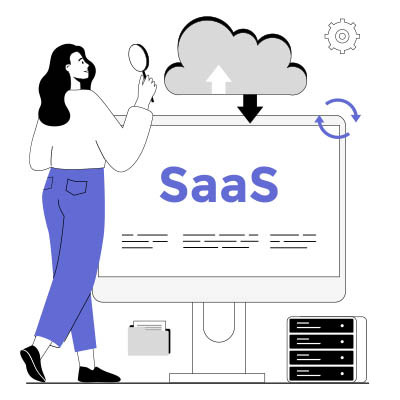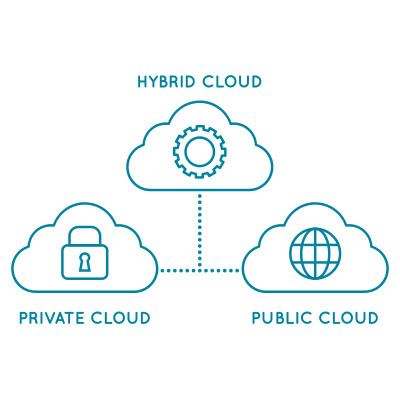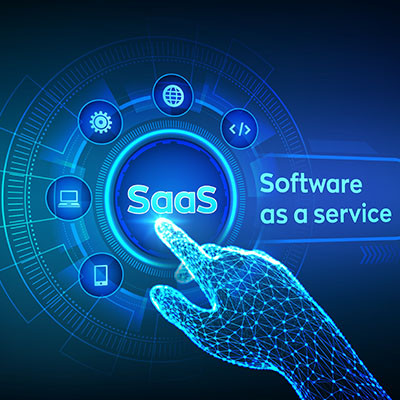Businesses are constantly seeking ways to build agility. Like many things, it’s not as easy as just saying it. If your current technology feels more like a roadblock than a launchpad, it might be time to explore some different strategies. Let's talk about MACH architecture, the powerful framework designed to build a flexible, scalable, and future-ready digital workplace.
TS3 Technologies Blog
The cloud is an essential piece of technology for any modern business, but how much do you actually know about the cloud in 2025? Any business can leverage the cloud, from small businesses to large enterprises. Let’s discuss what the cloud is, what it does, and how it can help your business reimagine its operations.
You might remember the good old days of software, and by “good old days,” we mean “good old days of tedium, installing software on computers one by one.”
Software as a Service, or SaaS for short, has put an end to those days and has made way for better options for SMBs. Today, we want to look into these subscription-based tools and showcase their benefits.
VoIP, or Voice over Internet Protocol, is great. It can be a pivotal tool to help you transform your business’ communications infrastructure, provided you implement it with intention. Today, we want to share three of the biggest benefits your business can expect to enjoy from switching to a VoIP solution.
The cloud is a remarkable innovation that businesses of all industries and sizes can utilize to scale growth and operations. How you use the cloud, though, will change depending on your company's specific pain points and requirements. How can you invest in a cloud solution that ticks all your boxes? It starts with assessing whether you want to utilize a public, private, or hybrid cloud infrastructure.
Most businesses who utilize the cloud report that they have managed to cut costs while still getting the resources they need to perform to spec. Businesses can use the cloud for processing and storing data, as well as application deployment, making it a very dynamic solution to a business’ needs. However, you cannot make decisions based on cost alone. Here are some other factors to consider.
The telephone, as a technology, has been around for quite a while, more or less serving businesses for that entire time. Of course, we’ve seen quite a few advancements in telephony over the years, which has helped it to remain a cornerstone of modern business communications to this day in the form of Voice over Internet Protocol, or VoIP.
Your business depends on software for many of its day-to-day operations, whether it’s an email system, productivity suite, or other specialized software. When it comes to acquiring software, you have two options: the traditional method of acquisition, i.e. buying it from a vendor, or subscribing to a Software as a Service solution. What are the differences and how can you make sure your organization is getting value out of its investment?
When you think of the government, you don’t immediately think of an organization that is at the forefront of innovation. Sure, they have all that money at their disposal, but most of it goes here and there to try to help the people of a constituency; and, frankly it isn’t terribly efficient. What may surprise you is that governments are embracing cloud services and it tends to benefit everyone. Let’s see how governments are taking advantage of cloud computing.
Cloud computing is being used by nearly everyone nowadays, and most of the time it presents a lot of value that can’t be found with purchasing, managing, and maintaining an in-house computing infrastructure. As an organization begins moving more and more of their computing to the cloud, there is a situation that arises that industry professionals call “cloud sprawl”.
You might be familiar with the concept of hosting a service or application in-house on your own server units, and if you are, you know all about the struggles that come along with doing so. But what if we told you that you can get the same benefits of hosting your own applications and IT systems without the need for any of the bulky equipment taking up space in your office? Yes, that’s right—you too can host your business applications, even if you do not have the space to do so, and it’s all thanks to the cloud.
The cloud is a great tool to improve the accessibility of applications and data, but with so many options available to businesses, it can be a bit intimidating to get started with it. Let’s go over some of the various types of cloud solutions available, as well as some of the more well-known services that you might find helpful.
When we talk about the cloud, what springs to your mind? The cloud might sound like a business buzzword, but in reality it’s one of the most important components of a technology infrastructure, especially in today’s online environment. Considering the ongoing pandemic and unpredictability that the situation brings, you don’t want to wait any longer; you should have started thinking about implementing the cloud yesterday.
Cloud computing has been one of the most utilized tools for business in 2020. The COVID-19 pandemic has made it crucial for businesses to give remote access to tools and one effective way to make that happen was to look to the cloud. This has expanded an already booming market and presents businesses of all sizes with the opportunity to get the computing they need without huge upfront costs. Today, we’ll take a look at the cloud computing market and how you can leverage hosted computing solutions to improve your business.
Businesses have many problems they need to solve. With technology, the process typically starts with identifying a problem, researching solutions, and finding one that will successfully work to solve the problem. Traditionally, when dealing with technology, a company would procure the hardware and hire technicians to implement the solution and deploy the services needed. If they had to borrow money to do it, they would because the profits would presumably be more than the payments even with banks tacking on interest.
A lot is made about cloud computing and its cost and time saving benefits, but when your business is small, a lot of times, it could just be looked at as an unnecessary addition to your computing infrastructure. Today, we thought we would go through a few ways that even the smallest of businesses can utilize cloud computing.
This is a strange time for everyone. For business owners, it’s filled with uncertainty as many of their businesses have had to shut down in the face of the global COVID-19 pandemic. Others were forced into embracing remote operations. For these companies, their cloud platforms are turning out to be major benefits. Today, we’ll explain why.
Cloud solutions are extremely popular among modern businesses, whether they rely on public cloud resources or maintain their own in-house private cloud. Some businesses, however, elect to take the middle ground and use a “hybrid” cloud solution. Let’s take a few moments to determine if your business could benefit from this approach.
When you look at the cloud service business model, it can be easy to wonder how it is so beneficial to businesses - or really, how it fiscally can be. After all, dollars to donuts, the monthly service charges most likely add up to less than a business would spend for another, comparable service. To understand how the cloud does this, it may help to look at something that often occurs in the office.
There is no denying that the cloud has exploded into the fastest growing business computing method, and for good reason. The cloud has a plethora of options that are designed to meet the needs of the modern business. Today, we examine how your business can leverage the inexhaustible supply of cloud options.























